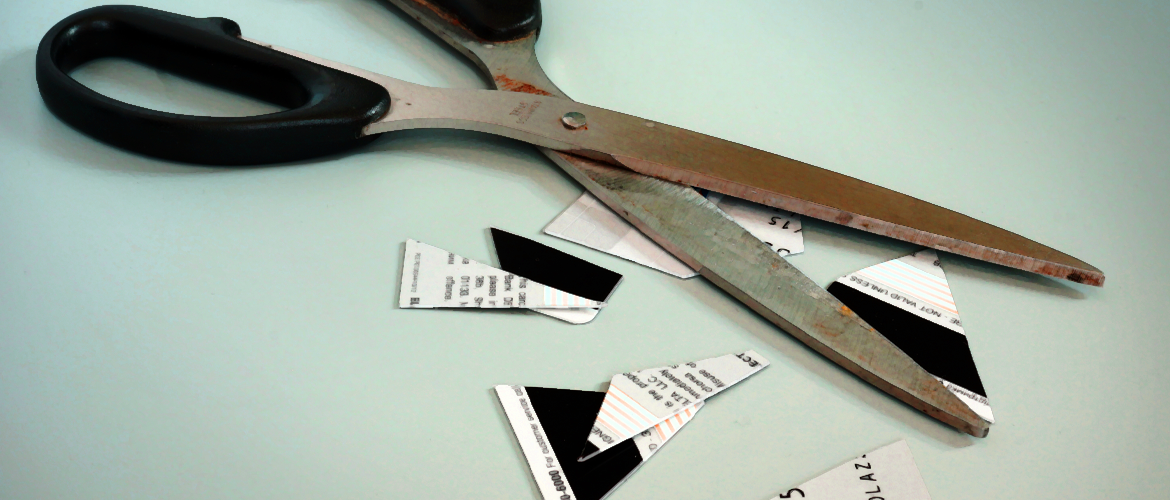As I’m sitting in my home office, clanging on the keys of my MacBook, I can see that it’s another dreary, rainy New England day. That time of year when you’re either over-dressed or under-dressed for the temperature. And sometimes both in the span of a 30-minute walk.
But that old adage about “April showers brining May flowers” has kind’a stuck with me and made me think a bit about our approach to money. Specifically, saving for the future. We have to accept certain things (like weather) because we have no control over them. And when we do see the results of those rainy days in bright colorful flowers (promise kept), we reflect on the previous month’s weather as being “not so bad” after all.
So why is it so hard for us to keep the financial promises we make to ourselves?
You know things like:
“I’m not ordering another thing from Amazon for 6 months.”
“I’m not using my credit card until I pay off the balance.”
“And I’m not going on vacation until may car’s paid off. And even then, it’s going to be a driving destination.”
All great promises. All well within or control (unlike the weather). And yet so many of us falter. Even with the noblest of intentions and strongest of starts.

Allow me to quote Professor Sean Maguire (Robin Williams’ character in “Good Will Hunting”): “It’s not your fault. It’s not your fault.”
You see, we humans are not wired to delay gratification. Despite thousands of years of walking upright, we instinctually lean towards immediate gratification. Even when it’s not in our best interest.
For our ancestors, finding food and shelter quickly was often a matter of life or death. Survival of the fittest, so to speak. And while we are far better off than them in many ways, and have evolved light years beyond them intellectually, that desire for instant gratification lingers.
Scientists call it an “immediate gratification bias” and have been studying it for years.
In fact some very smart professors at Stanford published exhaustive research in the early 70’s on the matter known as The Marshmallow Experiment
Delaying gratification is anything but child’s play
In the Stanford Marshmallow Experiment, children ages 4 and 5 were offered a single marshmallow with the promise of another if they could wait 15 minutes before eating the first. Such a simple premise, even a child could understand. One now, or two later?
The researcher placed the marshmallow on the table and left the room. Upon returning to the room, the researcher would know if the child could put off gratification in exchange for a second marshmallow.
While many tried to wait, the temptation got the best of them. There are videos available online from the study that show the sometimes-humorous struggles the research subjects experienced for that short period of time.
Through a series of follow-ups over the years since, the researchers found that those who were able to delay gratification, went on to become better students, scoring higher on the SATs. What’s more, they were better able to handle the stress of life and grew to be happier, more successful adults. Not a bad ROI for 15 minutes of waiting!
What does that mean for those of us who want our marshmallow now?
For starters, you’re in good company. We’re all living with that push-pull. It’s like in those cartoons where there’s an angel on one shoulder whispering why we should wait and not make a purchase. And a devil on the other shoulder shouting why we deserve to give in now and buy yet another Stratocaster. (My personal devil is very specific and consistent!)
Researchers at Princeton report this as an ongoing battle between the two sides of our brains. The emotional, that naturally defaults to immediate or instant gratification. And the logical, which tries to reason with us by reminding us of the future consequences.

In economics, focusing on the future outcomes over current ones is called “time preference.” And that’s where we want to shift our thinking to. But if we’re hard-wired to default to our emotional brain in spite of our good intentions, how do we get there?
It’s all a matter of perspective
We all have financial goals. Some are immediate, some short-term, some medium-range and some much farther off in the future. But they’re all important. And they all need to be regarded as such.
But as we discussed earlier, the further away they are, the harder they can be to stick to. Like saving for retirement, which can feel light years away. And ditto, the kiddos’ education. After all, they’re young enough to be subjects in the Marshmallow Experiment.
A suggestion that worked for me was “reframing” how I looked at these goals. It starts by acknowledging that while they may be far off, the easiest way to get there was by setting a little money aside each month and letting the power of compounding interest and dollar-cost- averaging work to my advantage.
Instead of seeing it as “taking away money that could be enjoyed today, I was actually making a down-payment on my financial freedom. I was in fact purchasing the ability to enjoy a worry-free retirement lifestyle. I could go where I wanted, do what I wanted — be as busy or chill as I desired. It would be my choice, bought and paid for completely.
Likewise with saving for my son’s college education. I was ensuring that I wouldn’t have to come up with a massive amount of money all at once when it was time for him to enroll. And even better, he wouldn’t graduate saddled with crippling debt like so many others.
As a bonus, I was able to teach him some valuable lessons along the way about personal finances, goal-setting, prioritization and money management. Which is why when he moved out after college, he was able to stay out on his own. Even through Covid!
Set yourself up for success
The best way to stick to important goals is to make it easy and automatic to do so.
If your employer offers a retirement savings or pension plan, enroll in it. Most contributions are withdrawn automatically from your paycheck. And you can’t spend what you don’t have.
The other great thing about employer-sponsored plans is that many have tax-deferred benefits. So not only do you get to deduct your contributions from your current income tax filing, you won’t have to pay taxes until you start withdrawing money in retirement. And most likely, you’ll be at a lower tax rate by then.
You can also set up a college account with an investment or brokerage firm and fund it with automatic withdrawals from your savings or checking account. This requires some simple paperwork upfront then it’s set it and forget it. And if you choose a qualified 529 Plan, you can take advantage of the additional tax benefits and savings they offer.
To make saving even easier and to get the most complete view of your financial picture and all your goals, you might want to give the newest release of Banktivity a try. Designed exclusively for Mac OS and iOS, Banktivity’s suite of personal financial software helps you confidently take on all your important goals.
Whether it’s paying off debt, building an emergency fund, saving for a down payment on a home, a college fund or even retirement, Banktivity’s has the interactive and intuitive planning tools you need.
And when it comes to your retirement, Banktivity gives you the clearest view of what that will look like and when. Simply key in how much you hope to have saved, what you’ve saved so far, and Banktivity will let you know how much you need to contribute to reach your goal.
Not only will it tell you when you can expect to retire, Banktivity factors in how much you can expect to receive in social security (for U.S.-based customers). So you’ll know just how much you’ll have to spend each month when you retire.
What’s more, Banktivity links with all of your accounts — credit, checking, savings and investing. So setting up automatic deposits is a breeze. And with customizable budgeting and reporting features, you’ll always know how much you have, where money’s going and how well you’re tracking towards your goals.
And don’t worry if you promised yourself no new purchases this month. Banktivity’s got you covered.
